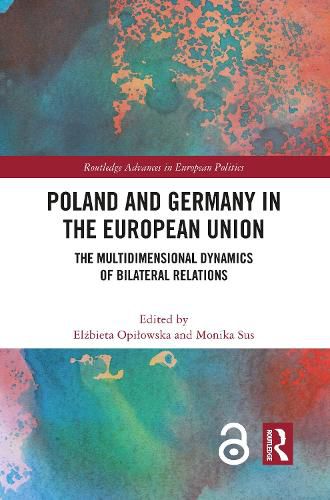Readings Newsletter
Become a Readings Member to make your shopping experience even easier.
Sign in or sign up for free!
You’re not far away from qualifying for FREE standard shipping within Australia
You’ve qualified for FREE standard shipping within Australia
The cart is loading…






This book explores the political and social dynamics of the bilateral relations between Germany and Poland at the national and subnational levels, taking into account the supranational dynamics, across such different policy areas as trade, foreign and security policy, energy, fiscal issues, health and social policy, migration and local governance.
By studying the impact of the three explanatory categories - the historical legacy, interdependence and asymmetry - on the bilateral relationship, the book explores the patterns of cooperation and identifies the driving forces and hindering factors of the bilateral relationship. Covering the Polish-German relationship since 2004, it demonstrates, in a systematic way, that it does not qualify as embedded bilateralism. The relationship remains historically burdened and asymmetric, and thus it is not resilient to crises.
This book will be of key interest to scholars and students of European and EU Politics, German politics, East/Central European Politics, borderlands studies, and more broadly, for international relations, history and sociology.
$9.00 standard shipping within Australia
FREE standard shipping within Australia for orders over $100.00
Express & International shipping calculated at checkout
This book explores the political and social dynamics of the bilateral relations between Germany and Poland at the national and subnational levels, taking into account the supranational dynamics, across such different policy areas as trade, foreign and security policy, energy, fiscal issues, health and social policy, migration and local governance.
By studying the impact of the three explanatory categories - the historical legacy, interdependence and asymmetry - on the bilateral relationship, the book explores the patterns of cooperation and identifies the driving forces and hindering factors of the bilateral relationship. Covering the Polish-German relationship since 2004, it demonstrates, in a systematic way, that it does not qualify as embedded bilateralism. The relationship remains historically burdened and asymmetric, and thus it is not resilient to crises.
This book will be of key interest to scholars and students of European and EU Politics, German politics, East/Central European Politics, borderlands studies, and more broadly, for international relations, history and sociology.